Game: University of Missouri vs. University of Illinois
Location: Scottrade Center - St. Louis, Mo.
Date: Wednesday, December 23, 2009
Title: Busch Braggin' Rights
Final: Missouri 81, Illinois 68
Photos:
Thursday, December 24, 2009
Tuesday, December 22, 2009
Ice Hockey - CBC vs. SLUH
Only having been a college graduate for three whole days, I figured what better for a self-assignment than a classic rivalry between St. Louis prep schools Christian Brothers College and St. Louis University High. The game took place Monday, December 21 at Afton Ice Rink in Afton, Mo. CBC had lost the earlier season match-up with a score of 2-1. However, that result was reversed with the Cadets winning 2-1 against SLUH for their second meeting of the season.


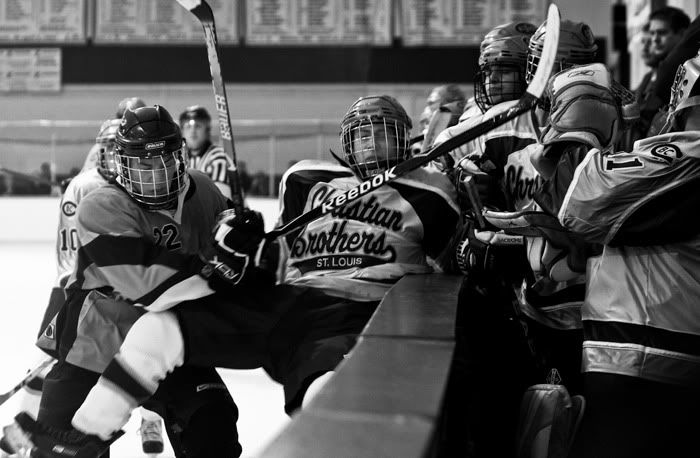







Monday, December 14, 2009
Understanding: 29 and Autistic
At 29 years of age, most adults are married, have been married, have children, own a home or have a stable, self-supporting income. While this may be the norm, and certainly there are exceptions to the norm with people choosing to stay single, travel the world or do other expectation-breaking things, it is most certainly not the norm for Chris Atkinson. At the age of three in 1980, Chris' parents Nancy and Terry were told that the son they thought they would have was "dead." He in fact, was not dead, though he was diagnosed with autism, a developmental disorder that affects normal social and communication development in the brain.
Fast forward to present day, in which the disorder has become increasingly common, researched and treated, we go beyond the childhood that Nancy Atkinson fought for Chris to have in the public school system of Hallsville, Mo. Today, Chris functions primarily in a child’s state of mind, but no one can tell how much he truly understands. Though he can do things for himself, like brush his teeth, shower, change clothes and buckle his seat-belt, he cannot drive, cook a meal, write out a grocery list or most importantly communicate his needs or feelings. With few services available in the community for adults with autism, the 29-year-old Chris Atkinson spends most of his time in front of his TV and in his childhood home.

In the front yard of the Atkinson’s rural home, Chris paces an
exact route along the gravel driveway. He passes a dog that
doesn’t respond to his presence, the house he has lived in for
the past 29 years, and a basketball hoop that has never been
an after-school activity for him.
exact route along the gravel driveway. He passes a dog that
doesn’t respond to his presence, the house he has lived in for
the past 29 years, and a basketball hoop that has never been
an after-school activity for him.

Though to an outsider’s eye Chris’ room might be messy,
but to him it is exactly and perfectly organized. He has a
place for everything, and if a stack of hats falls off the door
hangers or papers off the dresser, he places them back in the
exact same place they were before. His room is adorned with
Disney characters, posters of TV characters from the 80s and
90s, stickers, and ribbons he’s earned at horseback riding for
the developmentally disabled.
but to him it is exactly and perfectly organized. He has a
place for everything, and if a stack of hats falls off the door
hangers or papers off the dresser, he places them back in the
exact same place they were before. His room is adorned with
Disney characters, posters of TV characters from the 80s and
90s, stickers, and ribbons he’s earned at horseback riding for
the developmentally disabled.
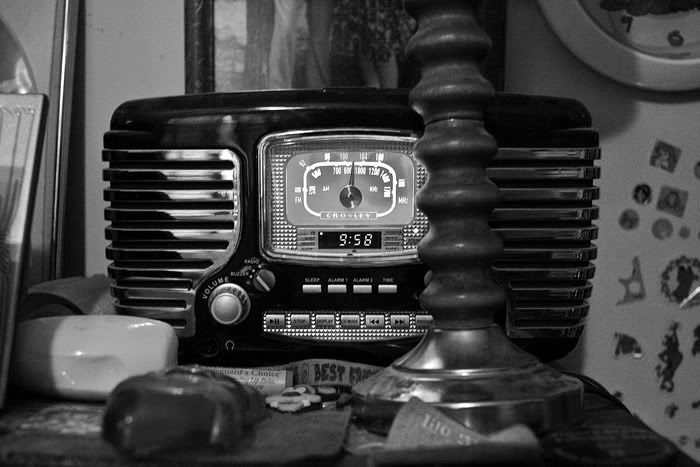
Despite the fact that he is overwhelmed by loud noises,
Chris turns his radio on at low volume, even if the TV is
also on. Be it radio or TV stations, Chris has the ability to
remember what time and channel, call letters included, a specifi
c show will be on. However, he does not have the ability
to express whether the show is still on the air, as is the
case with several older television game shows and TV series.
Chris turns his radio on at low volume, even if the TV is
also on. Be it radio or TV stations, Chris has the ability to
remember what time and channel, call letters included, a specifi
c show will be on. However, he does not have the ability
to express whether the show is still on the air, as is the
case with several older television game shows and TV series.
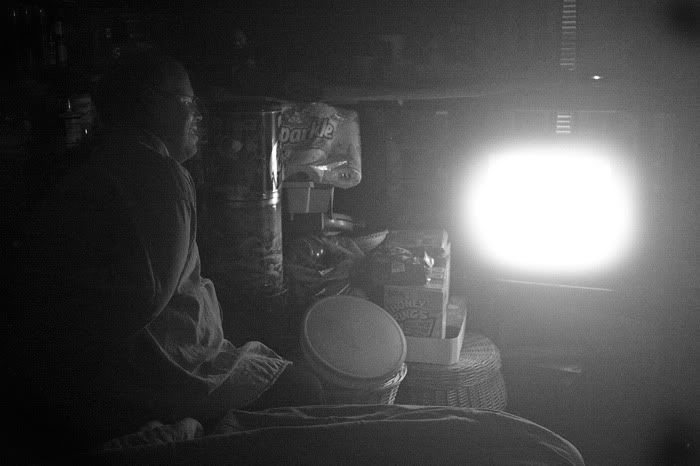
People with autism suffer from sensory overloads. Essentially,
the sounds or lights that are normal to everyone else
are terribly bothersome. Chris is sensitive especially to sound
but also to light. To combat this, he wears sound canceling
headphones and leaves the lights off as much as possible.
the sounds or lights that are normal to everyone else
are terribly bothersome. Chris is sensitive especially to sound
but also to light. To combat this, he wears sound canceling
headphones and leaves the lights off as much as possible.
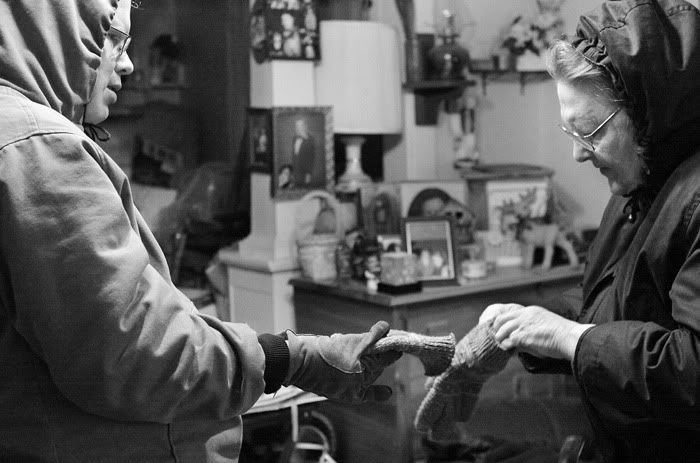
Before going on an early December morning walk for exercise,
Chris helps his grandmother put on her gloves
right after she tied his hood tight. Though the weather
was cold, walking is essential as Chris and Helen
have few opportunities for exercise throughout the day.
Chris helps his grandmother put on her gloves
right after she tied his hood tight. Though the weather
was cold, walking is essential as Chris and Helen
have few opportunities for exercise throughout the day.

Chris and his grandmother Helen Lee walk the block of her
home early one morning. Chris has spent nearly every weekend
since birth at his grandmother’s house. While there, he
helps her with dishes, sweeps the floor and does other simple
chores as Lee’s health problems limit her mobility.
home early one morning. Chris has spent nearly every weekend
since birth at his grandmother’s house. While there, he
helps her with dishes, sweeps the floor and does other simple
chores as Lee’s health problems limit her mobility.

While apple cider is cooking, Chris socializes with staffers
at TouchPoint Autism Services. He attends a weekly cooking
class for the developmentally disabled, in which simple
snacks or foods are made during the hour long class. During
the class, Chris keeps track of the time to make sure he
leaves as soon as the hour session has expired.
at TouchPoint Autism Services. He attends a weekly cooking
class for the developmentally disabled, in which simple
snacks or foods are made during the hour long class. During
the class, Chris keeps track of the time to make sure he
leaves as soon as the hour session has expired.
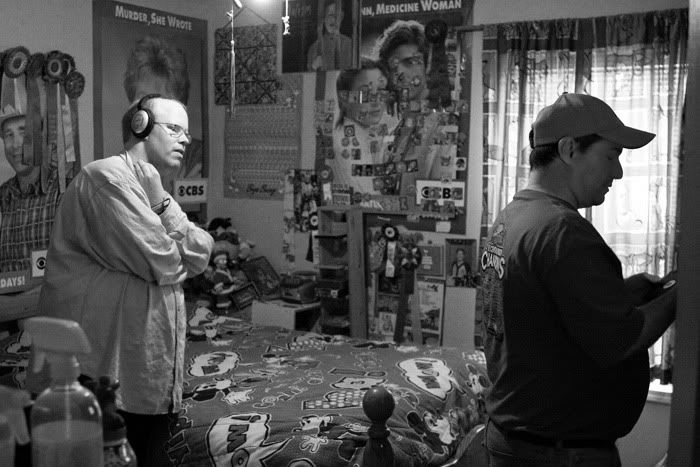
Apprehensive and worried, Chris watches his older brother
Curtis attempt to figure out what is wrong with the VCR after
two tapes had been destroyed. Chris’ main vice is watching
TV and old movies, and at the time of the movies breaking
Chris’ mother Nancy was worried a meltdown was on the way.
Though the problem was solved with a new VCR, Nancy explains
the meltdowns as unpredictable screaming fits in which
Chris claws at his own skin. They can last up to 15 minutes.
Curtis attempt to figure out what is wrong with the VCR after
two tapes had been destroyed. Chris’ main vice is watching
TV and old movies, and at the time of the movies breaking
Chris’ mother Nancy was worried a meltdown was on the way.
Though the problem was solved with a new VCR, Nancy explains
the meltdowns as unpredictable screaming fits in which
Chris claws at his own skin. They can last up to 15 minutes.
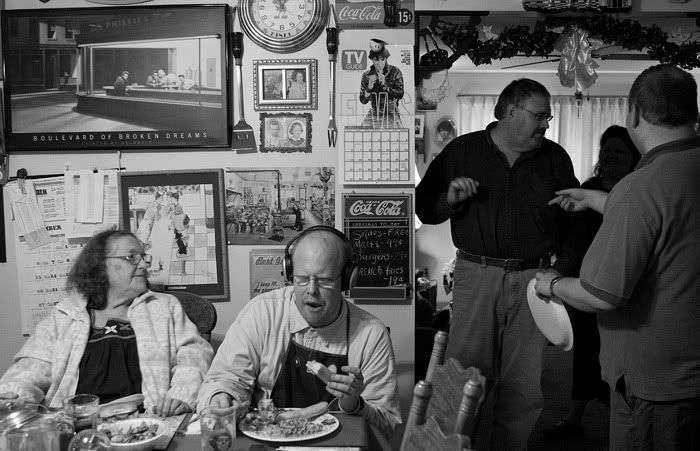
In the dining room of his home, Chris focuses on his lunch
as his family socializes around him. The extent of Chris’
interactions at such family gatherings consists of responding
to simple questions, shaking hands and saying hello.
During social situations, people with autism act in one of
three different ways; avoidant, indifferent or awkward.
as his family socializes around him. The extent of Chris’
interactions at such family gatherings consists of responding
to simple questions, shaking hands and saying hello.
During social situations, people with autism act in one of
three different ways; avoidant, indifferent or awkward.
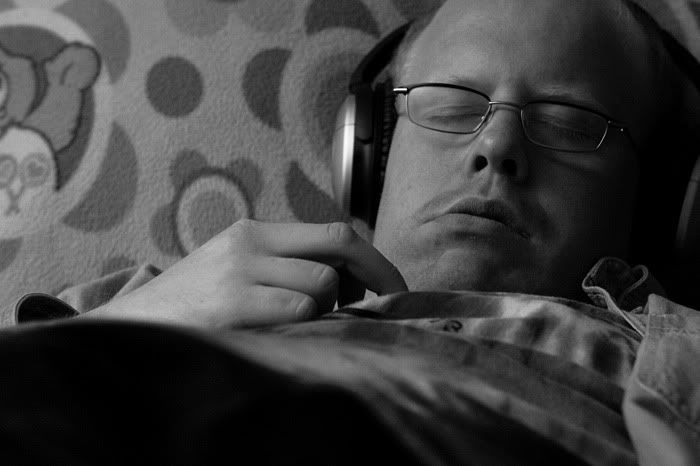
Chris is awake at 4:00 in the morning, out of bed at 4:30 and
in bed for the night at 9:00 or 9:01. The rigidity of his schedule
is an aspect of Autism in which every thing has a specific
place and every event has a specific time.
in bed for the night at 9:00 or 9:01. The rigidity of his schedule
is an aspect of Autism in which every thing has a specific
place and every event has a specific time.
Subscribe to:
Comments (Atom)